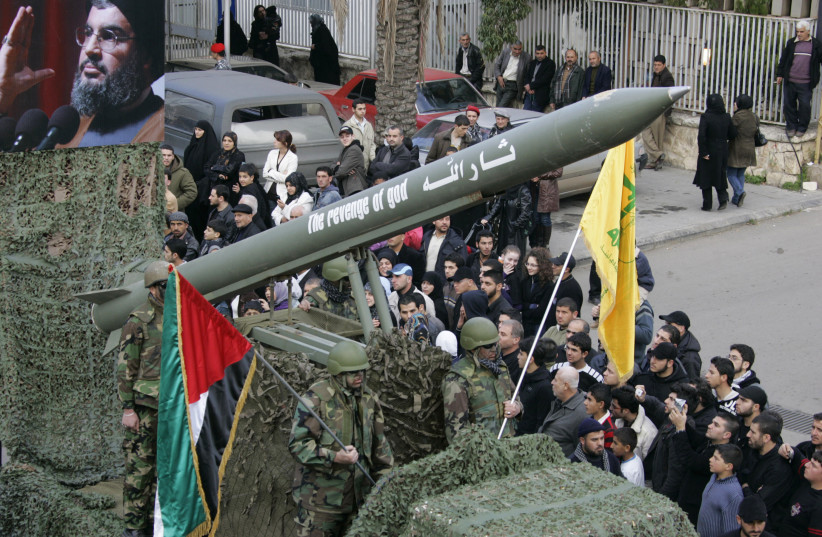The Middle East has long been known for its geopolitically constantly shifting sands. Throughout modern history, many of the major leaders of the region have looked to see which side is gaining the upper hand globally and have acted accordingly.
It is what journalist and author Lee Smith called the Strong Horse principle. Smith describes the region’s rulers as acting in their self-interests and using any available means to retain their hold on power, which usually means siding with the strong horse in the international arena.
This explains why many Arab leaders moved from the Ottomans toward the Allies in World War I, from supporting the Axis powers back toward the Allies when it was clear who was winning World War II, and from the Soviet Bloc toward the West as the Cold War was ending.
The principle seems to be alive and well. The recent decision to reestablish Iranian-Saudi ties was brokered by China, which says probably more about the broker than those who signed the agreement.
Little will change the deep sense of mistrust between the leaders of the Shi’ite and Sunni Muslim worlds. The conflicts that divide them in Yemen, Lebanon, Iraq, Syria and elsewhere will remain for now, the enmity will not easily disappear.

What has happened is that the Saudis have sent out feelers in many directions to see who can deliver. Ever since the Biden administration reoriented its predecessor’s closeness to the Saudis, Mohammed bin Salman has been seeking alternatives.
That is why many regional commentators have been left scratching their heads about this agreement being signed only days after it was leaked to the media that Saudi Arabia had approached the US for security guarantees and help with its civilian nuclear program as a condition for normalizing relations with Israel.
Perhaps the answers the Saudis received from Washington led them to believe that China was the best option available.
Big problem for Israel
This is a big problem for Israel for a number of reasons; firstly because the US remains unchallenged as Israel’s greatest ally and as of today, remains the world’s only superpower.
Nevertheless, this position is not as certain as it was only a few years ago. The Chinese have smelled weakness, especially with the West’s position on Ukraine and elsewhere.
THE DEMISE of the US influence in our region affects Israel’s standing vis-à-vis its enemies and opponents. While Israel is a regional military superpower, much of its seeming invincibility stems from Washington’s support and standing, and if that wanes, then it bolsters the violent rejectionists of Jewish sovereignty in its indigenous and ancestral homeland.
Secondly, the Saudis, like some of the more overt members of the Abraham Accords, are on board in great part because of US prodding and backing, whether for the deal for F-35 jets for the UAE or recognition of Western Sahara for Morocco.
If the Al Saud Family needs to retain their position in the region and even bolster it through security guarantees and a nuclear program of its own, and the US refuses to help, then it will go elsewhere.
If they believe that the Chinese can keep the Iranians in check, they will need the US far less. This may come at a price and while the battles the Shi’ite arc is waging against the Saudi allies might have to come down a notch or two, there could be far less opposition to Iran’s influence with terrorist organizations and entities attacking Israel.
In Israel, we remember not too long ago that Saudi Arabia itself was arming, assisting and providing the ideological foundation for terrorism against Israel. While those years might seem far in the past, the Saudis have never dropped their full-throated support for the Arab League Peace Initiative, which many believe would be a strategic disaster and significantly weaken Israel if it was adopted.
The over-100-year war against Jewish sovereignty might be entering a new phase, whereby the rising power in the region, China, has little sympathy for Israel and its constant battle to survive.
It might even be seen as advantageous to allow its two new allies to soften tension between them by realigning on the one conflict in our region which does not in some way pit them as rivals and opponents.
This could easily be exploited by those in Beirut, Gaza and Ramallah who dream of opportunities to defeat Israel. Israel will in turn need to navigate this new reality and make sure that none of these terrorist entities or organizations believe they have hope of defeating Israel.
Israel must send a clear message politically, diplomatically, economically and if necessary, militarily to its enemies and force them to disavow any hope of ultimate victory. It must crush their will to continue fighting.
Especially at this time, this hope must be disabused as the sands start to shift in our region once more and not in a way favorable to Israel.
The writer is the director of the Middle East Forum Israel.
